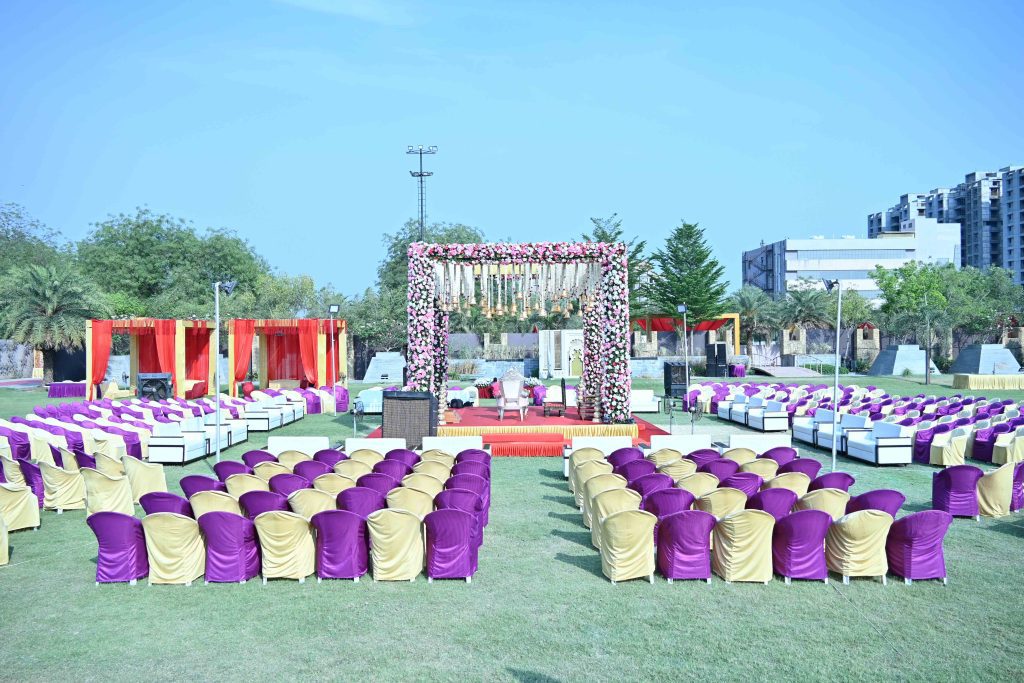Event management isn’t just about throwing a party or booking a venue – it’s about crafting experiences that leave a lasting impact. Whether you’re planning a corporate conference, a wedding, or a community event, mastering the art of event management means understanding every little detail that goes into making an occasion memorable.
In this guide, we’ll dive deep into what it takes to successfully manage events, from the initial planning stages to wrapping up with a glowing finish. Let’s get you up to speed on the essentials of event management, so you can bring any vision to life.
What Is Event Management?
It is the coordinated effort of planning, organizing, and executing events. This can range from social gatherings like weddings and birthdays to more complex events like corporate conferences, trade shows, and festivals. A good event manager juggles multiple tasks seamlessly, ensuring that the event flows smoothly and attendees have a memorable experience.
The Core Pillars of Successful Event Management
Planning: The cornerstone of any successful event. Planning involves setting clear objectives, identifying the target audience, establishing a budget, and scouting a suitable venue. Each decision must align with the event’s ultimate goal.
Budgeting: Whether it’s a high-end event or a modest gathering, budgeting is essential. Allocating funds appropriately for venue rentals, decor, catering, and entertainment can prevent overspending.
Execution: This is the make-or-break phase. Even with solid planning, poor execution can lead to chaos. Effective communication, leadership, and the ability to think on your feet are key here.
Evaluation: Once the event wraps up, it’s crucial to assess its success. Post-event feedback, guest reactions, and insights from your team help refine your approach for future events.
Types of Events and Their Unique Requirements
Corporate Events: Think conferences, product launches, and team-building exercises. These events often require venues with audio-visual setups, streamlined logistics, and structured agendas. Creating a professional atmosphere and maintaining a clear schedule are essential.
Weddings: Weddings are personal and emotional events that need attention to detail. From decor themes to catering, every element should align with the couple’s vision.
Social Gatherings: Birthdays, anniversaries, and family reunions need more flexibility in planning but can still be highly detailed depending on the client’s needs.
Festivals and Public Events: These events generally require crowd control, special permits, and a strong focus on safety and logistics.
Managing Vendors and Logistics for Event Management
Vendor management is a big part of the puzzle. From caterers to decorators, DJs to photographers, each vendor plays a crucial role. Clear contracts and communication are critical for setting expectations and ensuring everyone is on the same page.
Choosing Reliable Vendors: Start with recommendations or research. Look for vendors with proven experience in similar types of events.
Negotiating Contracts: Always clarify the deliverables, costs, and cancellation terms upfront. This prevents surprises on the day of the event.
Logistics Coordination: Details like load-in times, equipment setup, and guest seating arrangements can’t be overlooked. Good logistics management ensures the event flows smoothly.
Mastering the Art of Promotion and Marketing
To pull off a well-attended social event, your promotion strategy is essential. In the digital age, social media and online marketing can make a big difference in your reach. And this can be done with professional digital marketing agencies like SRS Pro.
Social Media Campaigns: Platforms like Instagram, Facebook, and LinkedIn can create buzz and attract your target audience.
Email Marketing: Sending invites and reminders to your list ensures your guests don’t miss important updates.
Partnerships and Influencers: Collaborate with influencers or partner with relevant brands to increase event visibility.
The Day-Of Checklist: Ensuring Everything Runs Smoothly
Briefing the Team: Make sure everyone knows their roles, the schedule, and any special instructions.
Testing Equipment: Run through AV setups, mic checks, and lighting tests to avoid last-minute malfunctions.
On-the-Spot Troubleshooting: Be prepared for anything. Keep a list of backups for everything from seating arrangements to tech support contacts.
Wrapping Up and Gathering Feedback
After the event, gather feedback from attendees and vendors. Analyzing feedback provides insights that can make future events even better. Sending thank-you notes, conducting surveys, and having a post-event meeting with your team are small but meaningful ways to improve continuously.
Common Challenges in Event Management and How to Tackle Them
Event management is full of potential pitfalls – vendors cancel, weather disrupts plans, or equipment fails. Here’s how to manage these challenges:
- Have a Plan B: Always anticipate the unexpected. Having backup vendors, an alternative venue, or contingency plans helps mitigate risks.
- Stay Calm Under Pressure: Event managers are problem-solvers. Staying level-headed and thinking on your feet is invaluable.
- Effective Delegation: Assign tasks to capable team members and trust them to handle specific areas. This prevents you from being overwhelmed.
Building Your Event Management Skill Set
Communication Skills: Clear communication keeps everyone on the same page, from clients to team members.
Organizational Skills: Detail orientation is key; small things often have big impacts on events.
Flexibility: Events rarely go 100% according to plan, so a flexible approach is crucial.
Event Management: Trends to Watch
The event industry is evolving rapidly, driven by technology and changing attendee expectations:
Hybrid Events: Mixing live and virtual components is popular, making events accessible to wider audiences.
Sustainability: Eco-friendly options are a growing priority, like paperless invitations, zero-waste catering, and recycling practices.
Personalization: Attendees appreciate custom experiences. Whether it’s a curated menu or a personalized event decor, people want events tailored to their preferences.
Looking for an Event Management Partner in Ahmedabad? Choose Janta Decorators
When it comes to creating unforgettable events, Janta Decorators stands out as one of the top event management companies in India. With a reputation for attention to detail, stunning decor, and flawless execution, Janta Decorators can transform any vision into reality.
From weddings and private gatherings to large-scale corporate events, Janta Decorators brings 5 decades of expertise to each event, ensuring that every aspect runs smoothly. Our commitment to excellence and customer satisfaction makes us the go-to choice for anyone looking to host a memorable event in India.
Conclusion
Event management is a dynamic blend of planning, coordination, and creativity. By mastering core elements like budgeting, vendor management, and day-of execution, you can create unforgettable experiences for any occasion. With the right skills and adaptability, every event becomes an opportunity to shine and leave a lasting impression.
For those seeking an expert hand, Janta Decorators offers on-the-point event management services in India, ready to bring any vision to life with perfection and flair.

